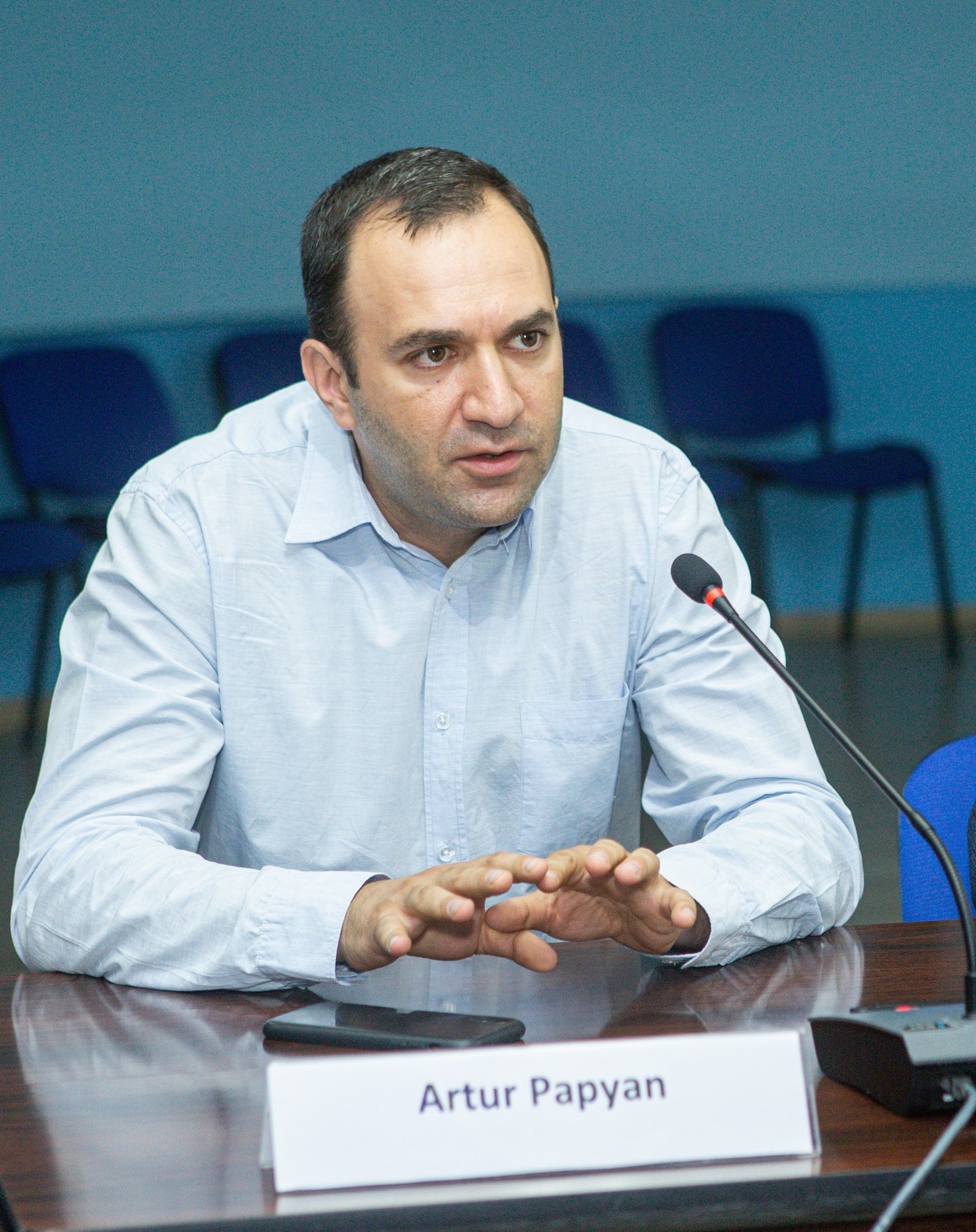Artur Papyan: Cyber Laws and Threats in Armenia [EP229]
Posted on Friday, Feb 24, 2023 | Category: Armenia, Technology, Media | Series: cog, video
In this Conversations on Groong episode, we’ll be talking about the Internet censorship bill proposed in Armenia before the new year. We’ll also talk about the threat and activity of some Cyber spying malware in Armenia, such as the Israeli Pegasus software, which represents a threat to journalists and freedom of expression.
Topics:
- Censoring the Internet
- Cyberthreats and Cyberspying in Armenia
Guest: Artur Papyan, malware researcher, digital security consultant, co-founder of CyberHub and director of the Media DIversity Institute.
Episode 229 | Recorded: February 24, 2023
Show Notes
Cyber Laws and Threats in Armenia
Censoring the Internet
On December 22, 2022 the Armenian ministry of justice caused a big commotion among the media community by publishing a proposal for legislative changes that would effectively allow the government to censor the internet completely or partially in the event of martial law. The deadline for submitting comments was Armenian Christmas, January 6, 2023, approximately 10 work days (with NY in between).
This is not the first time Pashinyan’s government has sought the power to censor the press and information flow to the people. If you recall, back in July ‘22, outgoing prosecutor general Arthur Davtyan’s outgoing slap at the people was a recommendation to the government to enact such a law.
Anyway, the proposal was slammed by international watchdogs such as Committee to Protect Journalists (CPJ), and even the Armenian government’s then ombudswoman, Kristine Grigoryan. Armenia’s Union of Journalists also deplored the proposal, and strongly urged the government to rework it. The CPJ did not mince words, they said “The Armenian authorities should not use military conflicts as an excuse to curtail press freedom”.
Your NGO, Media Diversity Initiative, also officially responded to this proposal.
Questions:
- Normally such major changes require a lot of consultation with stakeholders. Were such consultations held ahead of time?
- Who would be the major stakeholders?
- What are the main issues with the proposal?
- What is its current status?
One recent event corroborated your observation: two weeks ago when Armenia was downgraded in Transparency International’s 2022 Corruption Perception Index ranking, Pashinyan blamed the Armenian media for it!
Question:
- Why is this government so preoccupied with information censorship, primarily to its own people?
Cyberthreats and Cyberspying in Armenia
Pegasus & Predator
The NGO you’re part of, Cyber Hub, has made announcements recently that hundreds of Armenian journalists, politicians and even civil servants were targets of malicious activity with Pegasus and Predator. Google, Microsoft, and other large tech companies have also in the past warned about the activity of nation state actors against Armenian targets.
Your other NGO, Media Diversity Institute, has also been on the record documenting cases of attacks against Journalism and media freedom.
Question:
- Can you describe to us what is happening?
This type of activity is associated with nation states, some example cases are described by Amnesty International, which has done extensive forensics to combat Pegasus. More recently there have been questions around which nation states. Certain security analysts argue that because the Israeli company NSO Group, which sells Pegasus, usually restricts the usage to the territory of the government that acquires the solution, this must mean that Armenia can be the only licensee of the usage on Armenian territory, especially since it’s so widespread.
Questions:
- What can you tell us about the Armenian government’s overt or covert programs to target citizens with tools such as Pegasus?
- What is the difference between Pegasus and Predator?
- How do you detect it? How do I check my phone?
- Note: the Amnesty page has good leads to a DIY tool, but it is complicated; don’t expect your mom to help herself!
Recently, the company Checkpoint released a warning to users in Armenia about a new malware that is targeting users and apparently organized by a nation state actor.
Question:
- What can you tell us about this new malware? How does it spread?
Alright, we’ll leave it there for today! Thank you Arthur!
Wrap-up
All right, that’s our show, we hope you found it useful. Please find us on Social Media and follow us everywhere you get your Armenian news, the links are in the show notes. Thanks to Laura Osborn for the music on our podcasts. We’ll talk to you soon!
Guests

Artur Papyan
Artur Papyan is a malware researcher, digital security consultant, co-founder of CyberHub and director of the Media DIversity Institute.
Hosts

Asbed Bedrossian
Asbed Bedrossian is an IT professional, and for years oversaw the central IT enterprise infrastructure and services at USC. His decades of experience spanned across IT strategy, enterprise architecture, infrastructure, cybersecurity, enterprise applications, data center operations, high performance computing, ITSM, ITPM, and more.
Asbed founded the Armenian News Network Groong circa 1989/1990, and co-founded the ANN/Groong podcast in 2020.

Hovik Manucharyan
Hovik Manucharyan is an information security engineer who moved from Seattle to Armenia in 2022. He co-founded the ANN/Groong podcast in 2020 and has been a contributor to Groong News since the late 1990s.
Disclaimer: The views expressed by Hovik Manucharyan on the ANN/Groong podcast are his own and do not necessarily reflect the opinions of his employer or any other organization.